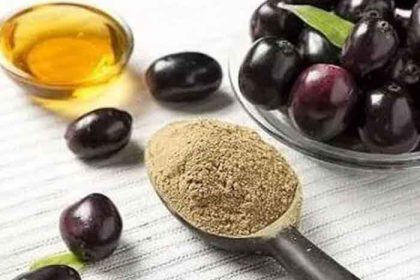Celery benefits sexually and men and female and sperm
Celery benefits
Celery benefits sexually and men and female and sperm on Nichooli site. We hope this article will be of interest to you.
Celery is a low-calorie, nutrient-rich vegetable offering several health benefits. It’s high in antioxidants like vitamin C and flavonoids, which help reduce inflammation and oxidative stress. Celery supports hydration due to its high water content and aids in digestion thanks to its fiber. It may also lower blood pressure and support heart health. Additionally, celery’s nutrients can contribute to healthy skin and potentially lower ‘bad’ cholesterol. However, excessive consumption can lead to digestive issues, increased urination, or allergic reactions in some individuals. It’s also beneficial for women, potentially supporting bone health, weight management, and reducing menstrual discomfort. Cooked celery retains most of its nutrients and offers similar benefits. Celery juice is a hydrating drink rich in vitamins and minerals, and the leaves of celery are equally nutritious, offering antioxidants and digestive benefits. Eating celery before bed might aid in relaxation and sleep, and it’s thought to have positive effects on sexual and reproductive health in both men and women. For men, it may contribute to improved circulation and prostate health. Celery is also a versatile ingredient that can be incorporated into various dishes, both raw and cooked.
Celery benefits
Celery is a versatile vegetable that offers a range of health benefits due to its rich nutrient profile. Here are some key benefits of including celery in your diet:
Low in Calories: Celery is very low in calories, making it a popular choice for weight loss diets and healthy snacking.
Rich in Antioxidants: It contains antioxidants like vitamin C, beta carotene, and flavonoids, which help in combating oxidative stress and reducing inflammation.
Supports Hydration: Celery has a high water content, which can help in keeping the body hydrated.
Aids Digestion: The high fiber content in celery supports healthy digestion and can help prevent constipation.
Reduces Inflammation: Compounds in celery, such as apigenin and luteolin, have anti-inflammatory properties, making it beneficial for people with inflammatory conditions.
Blood Pressure Regulation: Celery contains phytochemicals known as phthalides, which may help lower blood pressure by relaxing blood vessel tissues.
Supports Heart Health: The fiber, potassium, and other vitamins in celery can contribute to cardiovascular health.
Detoxification: Some believe that celery can help detoxify the body, although this is more due to its hydration and fiber content rather than any specific detoxifying compounds.
Alkalizing Effect: Celery is thought to have an alkalizing effect on the body, which can be beneficial for balancing the body’s pH.
Supports Skin Health: The vitamins and minerals in celery, along with its hydration and antioxidant properties, can contribute to maintaining healthy skin.
Cancer-Fighting Potential: Some studies suggest that compounds in celery, like apigenin, might have cancer-fighting properties, but more research is needed in this area.
May Aid in Reducing ‘Bad’ Cholesterol: There is some evidence to suggest that a compound in celery called butylphthalide may help lower LDL (bad) cholesterol.
Side effects of eating too much celery
Diarrhea: Celery contains a significant amount of dietary fiber. Consuming an excessive amount of fiber, especially if your body is not accustomed to it, can lead to diarrhea or loose stools.
Bloating and Gas: Celery is known for its high fiber content, which can cause bloating and gas in some individuals, particularly if consumed in large quantities or if you have a sensitive digestive system.
Allergic Reactions: While rare, some individuals may be allergic to celery. Allergic reactions to celery can range from mild symptoms such as itching or hives to more severe reactions like difficulty breathing or anaphylaxis. If you experience any allergic symptoms after consuming celery, seek medical attention.
Increased Urination: Celery has diuretic properties, meaning it can increase urine production. Consuming excessive amounts of celery may lead to increased urination, which could potentially lead to electrolyte imbalances if fluid and electrolyte intake are not adequately balanced.
Skin Sensitivity: Some individuals may experience skin sensitivity or irritation when handling or coming into contact with celery. This is more common in people with celery allergies or those with sensitive skin.
Celery side effect
While celery is generally considered safe and healthy for most people, there are some potential side effects and considerations to be aware of:
Allergies: Some individuals may have an allergy to celery, which can result in severe reactions. Symptoms can include skin reactions, itching, swelling, and in rare cases, anaphylaxis.
Pesticide Residue: Celery is often listed among the vegetables with high levels of pesticide residue. Consuming organic celery or thoroughly washing it can help reduce this exposure.
High Sodium Content: For a vegetable, celery has a relatively high sodium content, which might be a concern for individuals on a sodium-restricted diet.
Oxalates: Celery contains oxalates, natural substances that can crystallize and cause health issues in people with kidney problems. High oxalate levels can contribute to the formation of kidney stones.
Skin Sensitivity: Celery contains psoralens, which can increase the skin’s sensitivity to UV radiation. Handling celery, especially in large amounts, and then exposing the skin to sunlight can lead to dermatitis, a condition known as “celery dermatitis.”
Goitrogens: Celery contains substances called goitrogens, which can interfere with thyroid gland function. This is usually only a concern for people with existing thyroid conditions and when consumed in very large amounts.
Blood Thinning Effect: Celery contains vitamin K, which plays a role in blood clotting. While beneficial for most people, it can be a concern for those on blood-thinning medications. It’s important to maintain a consistent intake of vitamin K if you’re using these medications.
Gastrointestinal Discomfort: In some people, particularly those with sensitive digestive systems, the high fiber content in celery can cause bloating, gas, or other digestive discomfort.
Nutrition facts of celery
Celery is known for its low calorie content and a good range of nutrients. Here’s a breakdown of the nutrition facts for a typical serving of celery (about 110 grams or 1 cup chopped):
Calories: Approximately 16-20 calories
Water Content: Around 95%
Protein: 0.7 grams
Carbohydrates: 3 grams
Dietary Fiber: 1.6 grams
Sugar: 1.4 grams
Fat: 0.2 grams
Vitamin A: 9% of the Recommended Daily Intake (RDI)
Vitamin C: 5% of the RDI
Vitamin K: Approximately 30-40% of the RDI
Folate (Vitamin B9): About 9% of the RDI
Potassium: 8% of the RDI
Calcium: 4% of the RDI
Magnesium: 3% of the RDI
Celery also contains small amounts of Vitamin B6, Riboflavin (Vitamin B2), Pantothenic Acid (Vitamin B5), Manganese, Copper, and Zinc.
It’s important to note that these values can vary slightly depending on the size and specific variety of celery. The high water content and fiber in celery make it a great choice for hydration and digestive health. The low calorie and carbohydrate content also make it a popular choice for weight loss diets. Additionally, its rich vitamin and mineral profile supports overall health and well-being.
What does celery do for the female body?
Celery offers several potential benefits for the female body due to its nutrient content and certain compounds. Here are a few ways celery may positively impact the female body:
Antioxidant and Anti-inflammatory Effects: Celery contains various antioxidants and anti-inflammatory compounds, such as flavonoids and polyphenols. These substances help protect cells from damage, reduce inflammation, and support overall health.
Hydration and Weight Management: Celery is high in water content and low in calories, making it a hydrating and potentially weight-friendly snack option. Staying hydrated is important for overall health, and including celery as part of a balanced diet can contribute to maintaining a healthy weight.
Digestive Health: Celery is a good source of dietary fiber, which aids in digestion and promotes regular bowel movements. Adequate fiber intake can help prevent constipation and maintain a healthy digestive system.
Phytoestrogens: Celery contains natural plant compounds called phytoestrogens. These compounds have a similar structure to the hormone estrogen and may exert weak estrogen-like effects in the body. Phytoestrogens have been suggested to potentially help alleviate some menopausal symptoms, such as hot flashes and night sweats, though more research is needed.
Heart Health: Celery contains nutrients like potassium, vitamin K, and antioxidants that support heart health. Potassium helps maintain healthy blood pressure levels, while vitamin K is essential for blood clotting regulation.
Bone Health: Celery contains vitamin K, which plays a role in bone health by aiding in the activation of proteins involved in bone formation and mineralization. Adequate vitamin K intake, along with other essential nutrients, supports healthy bones.
Celery benefits for females
Celery can offer several health benefits for women, similar to its benefits for the general population, but there are certain aspects that might be particularly advantageous for females:
Bone Health: Celery is a good source of vitamin K, which is essential for bone health. Adequate vitamin K intake is crucial for women, especially to prevent osteoporosis and bone density loss, particularly post-menopause.
Weight Management: Low in calories and high in fiber, celery can be an excellent snack for weight management. Its fiber content helps in keeping you fuller for longer, which can aid in controlling appetite and supporting a healthy weight.
Anti-inflammatory Properties: The anti-inflammatory compounds in celery, such as luteolin, can be beneficial for women suffering from inflammatory conditions like arthritis or autoimmune diseases, which are more prevalent in females.
Skin Health: Rich in water, vitamins, and antioxidants, celery can support skin hydration and combat skin damage caused by free radicals, contributing to healthier, more radiant skin.
Cancer Prevention: Certain compounds in celery, like apigenin, have been studied for their potential role in cancer prevention, including breast cancer, though more research is needed in this area.
Menstrual Discomfort and Hormonal Balance: Although not extensively researched, some herbal medicine practices suggest that celery might help in reducing menstrual discomfort and promoting hormonal balance due to its anti-inflammatory properties.
Urinary Tract Health: Celery’s diuretic effect can support urinary tract health, which is beneficial as women are more prone to urinary tract infections (UTIs).
Heart Health: The potassium and antioxidants in celery contribute to cardiovascular health, which is important for women, especially those at risk for heart disease.
Stress Reduction: Celery contains magnesium, known for its relaxation and stress-reducing properties. Stress management is crucial for overall health, especially for women who often juggle multiple roles.
Digestive Health: The dietary fiber in celery supports digestive health, which can prevent constipation and promote a healthy gut.
Is cooked celery good for you?
Cooked celery can be good for you and offers several health benefits, although the nutritional content may vary slightly from raw celery. Here are some points to consider about cooked celery:
Retains Most Nutrients: While cooking can lead to some loss of certain nutrients, especially water-soluble vitamins like vitamin C, most of the nutrients in celery, including fiber, remain intact when it is cooked.
Easier Digestion: Cooking celery can make it easier to digest, which is beneficial for people with sensitive digestive systems or those who have difficulty digesting raw vegetables.
Antioxidants: Some studies suggest that cooking can actually increase the concentration of certain beneficial compounds. For instance, cooking can increase the availability of antioxidants in some vegetables, although this can vary depending on the cooking method.
Reduced Pesticide Residue: Cooking can help reduce the levels of pesticide residues, which is a concern with celery as it often appears on lists of vegetables with high pesticide content.
Lower Oxalate Content: Cooking can reduce the oxalate content in vegetables. High oxalate levels can be a concern for people prone to kidney stones.
Changes in Flavor and Texture: Cooking alters the texture and flavor of celery, which might be preferable in certain dishes. Cooked celery tends to be softer and less bitter than raw celery.
Versatility in Dishes: Cooked celery can be used in a variety of dishes, from soups and stews to stir-fries, providing flavor, nutrients, and fiber.
Loss of Some Enzymes: Cooking destroys certain enzymes in celery that are present when it’s raw. However, this is not typically a significant concern as the human body produces the enzymes necessary for digestion.
Low in Calories: Cooked celery remains low in calories, making it a good choice for those watching their calorie intake.
Safe for All Diets: Cooked celery is suitable for almost all diets, including those that restrict raw vegetables for health reasons.
Benefits of eating celery before bed
Eating celery before bed may offer some benefits, though these are largely anecdotal and not specifically supported by scientific research. The potential benefits could be linked to the general nutritional properties of celery. Here are a few possible advantages:
Low in Calories: Celery is low in calories, making it a light snack that won’t contribute significantly to weight gain, which is a consideration for those who prefer a snack before bed.
Hydration: Celery has a high water content, which can help keep you hydrated through the night. However, for some, this might also increase the need to urinate during the night.
Relaxation and Sleep Quality: Celery contains magnesium and potassium, minerals known for their relaxing properties. They can help regulate nerve function and relax muscle contractions, which might aid in better sleep.
Fiber Content: The fiber in celery can aid in digestion and prevent hunger pangs during the night. However, for some people, eating high-fiber foods right before bed can cause digestive discomfort.
Antioxidant Properties: Celery is rich in antioxidants like vitamin C and flavonoids. Antioxidants can combat oxidative stress, which is beneficial for overall health, but there’s no specific evidence linking this to improved sleep.
Blood Pressure Reduction: Celery contains phthalides, which may help lower blood pressure by relaxing the blood vessels. Lower blood pressure can lead to a more restful night’s sleep for some individuals.
Detoxifying Properties: Celery is sometimes claimed to have detoxifying effects due to its diuretic properties, though this is more a general health benefit rather than one specifically related to sleep.
Celery benefits for sexually
The idea that celery has specific benefits for sexual health is more of a traditional belief and anecdotal claim rather than a scientifically proven fact. However, some properties of celery may indirectly contribute to overall sexual health as part of a healthy lifestyle. Here are a few potential connections:
Improved Circulation: Celery contains phthalides, compounds that can help relax the muscles around arteries and allow these vessels to dilate. Better blood flow and circulation can have a positive impact on erectile function in men.
Stress Reduction: Celery contains magnesium, which is known for its relaxing properties. Reduced stress levels can positively affect sexual health and libido.
High in Antioxidants: The antioxidants in celery, such as vitamin C and flavonoids, combat oxidative stress in the body. Oxidative stress can affect reproductive health and sexual function.
Natural Diuretic: Celery can help flush toxins out of the body due to its diuretic effect, potentially improving overall health, including sexual health.
Contains Androstenone and Androstenol: Celery contains these two pheromones, which some sources claim can increase sexual arousal, though there is limited scientific evidence to support this.
Overall Nutrient-Rich Food: With its content of vitamins and minerals, celery contributes to overall health, which is essential for a healthy sex life.
Celery benefits for sperm
Celery is often discussed in the context of male fertility and sperm health, largely due to its nutritional content. While there’s no direct evidence that celery specifically boosts sperm health, its nutrients can contribute to overall reproductive health, which can indirectly benefit sperm. Here are some potential benefits:
Rich in Antioxidants: Celery contains antioxidants like vitamin C and flavonoids. Antioxidants help protect sperm from oxidative stress, which can damage sperm DNA and affect sperm quality and motility.
High in Vitamin E: This vitamin is known for its antioxidant properties and can protect cells, including sperm cells, from oxidative stress.
Mineral Content: Celery contains minerals like zinc and selenium, which are important for sperm production and quality. Zinc is crucial for testosterone metabolism and sperm formation, while selenium is known to improve sperm motility.
Hydration: Adequate hydration is essential for optimal sperm production, and celery, being high in water content, can contribute to overall hydration.
Phthalides: These compounds, present in celery, help improve blood flow and circulation, which is beneficial for overall reproductive health.
Alkalizing Properties: Some believe that maintaining an alkaline diet can improve sperm health. Celery is considered an alkalizing food.
Reduced Inflammation: The anti-inflammatory properties of celery may also support overall health, including reproductive health.
Celery benefits for men
Celery offers several health benefits that can be particularly advantageous for men. These benefits are largely due to its nutrient-rich profile, which includes vitamins, minerals, antioxidants, and other bioactive compounds. Here are some specific benefits for men:
Heart Health: Celery contains important nutrients like potassium and fiber, which are beneficial for heart health. Potassium helps regulate blood pressure, while fiber can improve cholesterol levels.
Prostate Health: The antioxidants in celery, such as flavonoids and vitamin C, may help reduce the risk of chronic diseases, including potentially reducing the risk of prostate issues.
Weight Management: Low in calories and high in fiber, celery can be a great addition to a weight loss or weight management diet.
Sexual Health: While not a direct aphrodisiac, the overall health benefits of celery, including improved circulation and potential hormone balancing properties, can support sexual health.
Improved Circulation: Compounds in celery, such as phthalides, can help relax the blood vessels, improving circulation. Good circulation is important for many aspects of health, including erectile function.
Stress Reduction: Magnesium in celery has calming properties, which can help reduce stress and its negative impacts on health.
Anti-inflammatory Effects: Chronic inflammation is linked to various diseases. The antioxidants and anti-inflammatory compounds in celery can help reduce inflammation in the body.
Cancer Prevention: Some studies suggest that a diet rich in fruits and vegetables, including celery, may help lower the risk of certain types of cancer.
Digestive Health: The dietary fiber in celery aids in digestion and promotes gut health.
Hydration: Celery’s high water content helps maintain hydration, which is crucial for all bodily functions.
Celery juice benefits
Celery juice has gained popularity as a health drink, and many people attribute various health benefits to it. Here’s a summary of the potential benefits:
Hydration: Celery juice is high in water content, which helps in keeping the body hydrated.
Rich in Vitamins and Minerals: It’s a good source of vitamins such as vitamin A, C, and K, and minerals like potassium and folate.
Antioxidant Properties: Celery juice contains antioxidants, which can help reduce oxidative stress and combat inflammation in the body.
Supports Digestive Health: The high water content and fiber in celery juice can aid in digestion and help prevent constipation.
May Lower Blood Pressure: Celery contains phytochemicals known as phthalides, which may help relax blood vessel tissues and lower blood pressure.
Anti-inflammatory Effects: Compounds such as apigenin and luteolin in celery have anti-inflammatory properties, which can be beneficial for people with inflammatory conditions.
Skin Health: The vitamins and minerals in celery juice can contribute to healthier skin.
Potential Detoxifying Effects: Some believe that celery juice can help detoxify the body, although this claim lacks strong scientific backing.
May Aid in Weight Loss: Due to its low calorie and high water content, celery juice can be a good addition to a weight loss diet.
Alkalizing Effect: Celery juice is thought to have an alkalizing effect on the body, which some believe is beneficial for balancing the body’s pH and improving overall health.
Celery leaves benefits
Celery leaves, often overlooked and discarded, are actually nutrient-rich and offer several health benefits, much like the celery stalks themselves. Here are some of the key benefits of celery leaves:
Nutrient-Dense: Celery leaves are rich in vitamins and minerals, including vitamin A, vitamin C, and vitamin K, as well as folate, potassium, and calcium.
High in Antioxidants: They contain antioxidants like flavonoids and vitamin C, which help combat oxidative stress and may reduce inflammation in the body.
Supports Digestive Health: The fiber in celery leaves aids in digestion and promotes gut health.
Heart Health: The potassium in celery leaves can help regulate blood pressure levels, contributing to cardiovascular health.
Immune System Support: The high vitamin C content can boost the immune system.
Bone Health: Vitamin K in celery leaves is essential for bone health and proper blood clotting.
Anti-inflammatory Properties: Celery leaves contain compounds that have been shown to have anti-inflammatory effects, which can be beneficial in managing conditions like arthritis.
Skin Health: The vitamins and minerals in celery leaves can support skin health, potentially improving skin hydration and elasticity.
Weight Management: Low in calories but high in fiber and water content, they can be a good addition to a weight-loss diet.
Detoxification: While the idea of detoxifying foods is widely debated, the high water content and various nutrients in celery leaves support the body’s natural detoxification processes.
Versatile Culinary Uses: They can be used in various culinary preparations, adding flavor and nutrition to dishes like soups, salads, and stews.
Celery vitamins
Celery is a nutritious vegetable that provides a variety of vitamins and minerals. Here are the key vitamins found in celery:
Vitamin A: Celery is a good source of vitamin A, particularly in the form of beta-carotene, which is important for eye health, immune function, and skin health.
Vitamin C: This vitamin acts as an antioxidant, supporting the immune system, skin health, and aiding in the absorption of iron from plant-based foods.
Vitamin K: Celery is very high in vitamin K, essential for blood clotting and bone health.
Folate (Vitamin B9): Important for normal tissue growth and cell function, folate is vital for pregnant women and contributes to overall heart health.
Vitamins B6 and B5: Celery contains small amounts of B-vitamins like B6 (pyridoxine) and B5 (pantothenic acid), which are involved in energy metabolism and the production of neurotransmitters.
How to eat celery?
Celery is a versatile vegetable that can be enjoyed in a variety of ways, both raw and cooked. Here are some ideas on how to incorporate celery into your diet:
Raw
Snacking: Simply wash and cut celery into sticks for a crunchy, low-calorie snack. It’s great with dips like hummus, peanut butter, or yogurt-based dips.
Salads: Add chopped celery to salads for extra crunch and flavor. It pairs well with a variety of ingredients like apples, nuts, and cheeses.
Smoothies and Juices: Blend celery with fruits and vegetables for a nutritious smoothie or juice.
Sandwiches and Wraps: Include thin slices or small dices of celery in sandwiches and wraps for added texture and freshness.
Cooked
Soups and Stews: Celery is a classic ingredient in many soups and stews. It’s part of the “mirepoix” mix, along with carrots and onions, used as a base for flavor.
Stir-Fries: Add chopped celery to stir-fries for a crunchy element. It cooks quickly and absorbs flavors well.
Braising and Roasting: Celery can be braised or roasted as a side dish. When cooked, it becomes softer and its flavor mellows.
Stuffing and Casseroles: Chopped celery is a common ingredient in stuffing recipes for poultry and in various casseroles.
Other Creative Ways
Celery Leaves: Don’t discard the leaves! They can be used like herbs in salads, as garnish, or blended into sauces and dressings.
Celery Salt: You can make celery salt by blending dried celery or celery seeds with salt, which can be used to season dishes.
Pickled Celery: Pickle celery sticks for a tangy snack or to add to salads and sandwiches.
Tips
Preparation: To prepare celery, wash it thoroughly under running water to remove any dirt or pesticides.
Storage: Keep celery wrapped in a damp cloth or paper towel in the fridge to maintain its crispness.
Reviving Wilted Celery: If celery has lost its crunch, trim the ends and soak the stalks in ice water for a few minutes to revive them.
Remember, celery’s mild taste makes it a versatile ingredient that can be easily incorporated into a wide variety of dishes. Whether you prefer it raw or cooked, there are plenty of ways to enjoy its crunchy texture and nutritional benefits.




















Thanks for finally talking about > Celery benefits sexually and men and female and sperm panti asuhan
Hi. thank you. We are glad that the article was useful for you.